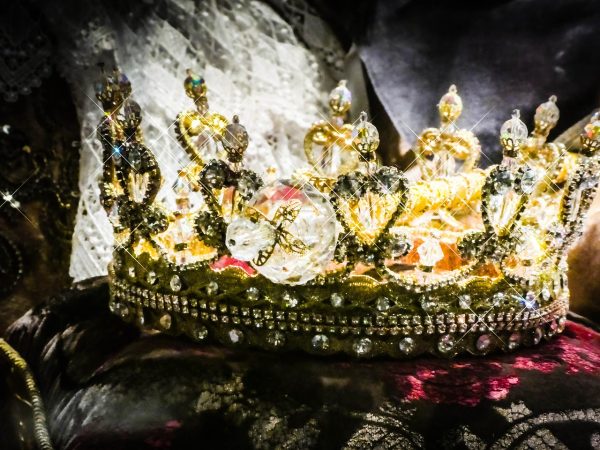In the British monarchy (1,500 years and still in business) the successor becomes monarch by the Grace of God, not by the gracelessness of a caucus or a TV network poll, immediately upon the death of his or her predecessor. The coronation changes nothing, but is instead a religious occasion reminding the king or queen that he or she is nothing without God. There are crowns and robes and processions and blessings, but “uneasy lies the head that wears the crown” (King Henry IV, Part II) because the theme inherent in the coronation liturgy is “Man, thou art dust, and to dust thou shalt return” (Genesis 3:19).
A king or a reigning queen is not an oligarch; the job comes with observable perks but also with twenty-four-hours of usually unseen obligations to the people for the rest of the monarch’s life. Some nice sets of wheels come with the gig but as we learn from history (you know, one of those irrelevant liberal arts), the king might ride in a nice carriage today but in a tumbril tomorrow.
A constitutional monarchy is not a Disney movie.
After the solemnities of the coronation itself, though, there are merriments and parties and parades and entertainments throughout the kingdom. King Charles invited a number of fashionable entertainers for some of the more fashionable parties, but most of them have refused the invitation. Somehow the cool kids J.K. Rowlinged them.
And that is probably a good thing. The city traders, three-passport-holders, cinema stars, three-chord commandos, transient oligarchs, and wealthy exiles from other nations have no loyalty to anything but their next business deal. And make no mistake, the musician in ragged jeans wailing comradely countercultural songs is Mr. Big Business indeed.
King Charles might learn from this embarrassment that the choristers of St. Michael’s Church in Chesterton are loyal to the kingdom and to the person of the king; a famous chanteuse paid millions to entertain at an oil sheik’s wedding might be less interested.
The United Kingdom and the Commonwealth nations are rich with church choirs, Girl Guides, Boy Scouts, amateur theatrical troupes, veterans’ clubs, dance classes, marching bands, soloists, military bands, sea chanties from Newfoundland, the music and arts of Australia, the Bahamas, Belize, Canada, Grenada, Jamaica, New Zealand, Papua New Guinea, St. Kitts and Nevis, St. Lucia, St. Vincent and the Grenadines, the Solomon Islands, Tuvalu, Antigua and Barbuda, Scots pipers, Irish dancers, Welsh singers, and whatever it is that Cornishmen do.
These are people from all over the world who get their hands dirty working proper jobs and on weekends practice and celebrate their arts because they love what they do. They would be honored to share their gifts with their king.
The invitations to entertain at the coronations should have gone first to those who from overseas will host fundraisers for plane tickets for the local band, and those closer who will have to take a bus or a train to get to London, wrestling a tuba aboard while the driver fusses: “Get a move on, Alf; we ain’t got all day!”
Invitations to the nabobs and poncies, brittle and self-indulgent in their ingratitude, perhaps should never have gone out at all.
“God save the king” is a noble sentiment, but a nobler one would be for the king to say, from his heart, “God save the British people.”
This and other reflections on King Charles’ coronation will appear in Happy & Glorious: A Royal Celebration.

